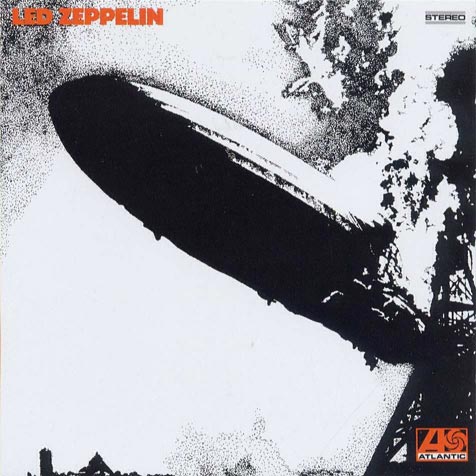Last updated on June 4, 2014
Do not say, “Thus I shall do to him as he has done to me;
I will render to the man according to his work.”Proverbs 24:29
See what I did with the photo up there? That’s the REmake of Resident Evil! HAHAHAHA
Part of the value of generalist criticism (as I seem to provide in a daily basis) comes from a holistic approach. You can, of course, examine anything to the tiniest detail, but will it provide you with a conclusion of any kind? Often, not at all. However, a generalist like myself must also be objective and see things as they are, not with my rose-tinted nostalgia goggles. In a way, it helps me sort out concepts that I’ve thought about previously in new ways. And, as a result, I will judge according to what’s actually happening, rather than what I want to see.
I’ve talked about remakes and remasters before, but I think I could dive into the subject a bit more. This article will focus on the more pragmatic elements of the whole “remaster” idea rather than comparisons between the actual games themselves.
This topic came to mind during a recent music kick, specifically Led Zeppelin. Apparently, even as a fan of rock music, you can miss many, many classic bands if you put your mind to it, but Spotify immediately rectifies that. The problem with older music, however, comes in the clarity of the recording and the authenticity to the original’s spirit. Given the current problem of the “Loudness wars”, whereby companies compress the dynamic range of music to make it sound more psychologically palatable, I’m just trying to find a good remaster of Led Zeppelin’s catalog without bizarre problems.
There’s at least four different versions on the market. Some people like the vinyl-like feel of the original Zeppelin CD releases, but others say they switch the stereo channels around. Others enjoy the Jimmy Page-helmed 1994 set, which definitely bring a lot of clarity but also introduced unnecessary fade-outs (that weren’t in the originals) and some fuzziness (although I think the bass sounds great). For the more hardcore completionist, a 2007 Japanese SHM remaster exists which supposedly refines the sound even more but also removes a lot of the grit which makes Zeppelin a rock band.
I have that same problem with the new remasters which just released a few days ago – everything sounds SO perfect. The first album lost a lot of the soft-hard dynamics and life that makes the 1994 version wonderful; on the other hand, the second album sounds wonderful and finally listenable (it has a notoriously horrible, bass heavy production which took forty years to fix!), while the third sounds no different.
Frankly, my brain’s been spinning just listing this out (not to mention the 2007 American remaster for the Mothership album, which is universally hated by audiophiles everywhere…and which I own, for some reason), but this is always the problem with “remasters” and remakes – you gain something, you lose something. In trying to both appeal to nostalgia (that’s how it used to sound!) and a new potential audience (the stuff my parents listened to wasn’t half bad!), you inevitably mess up something for somebody.
What’s the Point?
He who steals must steal no longer; but rather he must labor, performing with his own hands what is good, so that he will have something to share with one who has need.
Ephesians 4:28
You could, on some level, call “remastering” a bit of deception and general criminal behavior. Literally, they sell you a product which already exists on the market in some form or another with minor/major enhancements, but the thing in question often remains similar or identical to its source product (well, that depends). People make their own decisions, though, and do their own thing rather than blaming it on other people. Company X didn’t make you buy the product. You chose to buy it. But hey, remaking games sorta fits into that realm – a company literally takes an old product and “remasters” it into their own design. I have mixed feelings about it.
It’s good to understand why these exist, purely from a market perspective. For one, it’s relatively cheap to just give an old game a fresh coat of paint; you’ve seen that countless times already. Fans of the series in question (Final Fantasy’s a pretty good example) will definitely buy it, if only to play the game again, while other people who missed it get to see why people scream to the heavens about said game as “their favorite” or “the best of all time”
Only the best games (or, at least, best in the public consciousness) end up as remakes, so that’s a helpful indicator as to what people like. If it sells, the company gauges interest in an old property; if it doesn’t, little harm comes to the company’s bottom line. It takes effort to come up with a game concept, but merely some design work and graphics for a remake. It does explain why they keep reappearing (although sometimes they just release it as-is).
On the other hand, new and old fans alike demand something from older titles. They must be “brought into the modern day”, and so often said remakes kowtow to the demands of the public at the expense of the original design. Sometimes these turn out fine, given that the original game holds up regardless, while other provide multiple options for different markets.
The Mega Man remakes on PSP provide a sturdy example; both Mega Man: Powered Up and Mega Man Maverick Hunter X remade the initial titles in both series. Capcom went all out in Powered Up, turning the game’s characteristic 8-bit spritework into a cutsey, rainbow colored chibi aesthetic more fit for a Saturday morning cartoon series. It also offers a selection between “Original” and “New” modes, the former replicating Mega Man 1 as best as this new design could, while the latter adds a story mode and two bosses originally left on the cutting room floor. It is, as expected, substantially easier. Then again, Mega Man 1 does not represent the pinnacle of the series by any stretch, but this remake surely creates a case for it!
Maverick Hunter X, on the other hand, tries to replicate the original quite closely while adding more story-focused bits. Certainly, it changes stuff around, but there’s nothing major here that interferes with Mega Man X’s nearly impeccable design. Apparently it creates continuity errors with the rest of the series, but since when did Mega Man make a case for strong video game storytelling?
In either event, you’d imagine both approaches a sufficient device, but no. We demand more! And we get it! Or maybe not…
Part Two Tomorrow!



